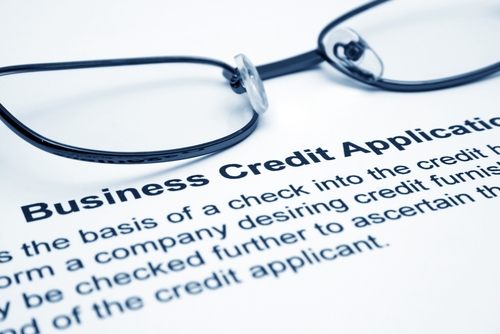Are you aware that as an entrepreneur you have the opportunity to establish, and maintain credit as a business entity and as an individual keeping the two files totally separate? For entrepreneurs that are looking to build and grow a business with limited start up capital without relying solely on their personal credit to do so business credit is the best thing since sliced bread.
As a financial consultant, entertainment industry executive, and 17 year veteran in the personal and corporate credit arena, it has been my experience that less than 15 percent of entrepreneurs truly understand the power of business credit and how it should be properly established in order to gain the maximum benefit as a business owner. The percentage of entrepreneurs in the entertainment industry that understands business credit is less than other industries although when properly established business credit is a valuable tool that can allow a small independent label or film company with limited liquid cash to have a larger budget for advertising, distribution costs, travel costs, and other expenses that can be covered with net 30 and revolving accounts.
The first step to better understanding business credit is by getting an understanding of how personal credit differs from business credit. Once this is done and only then can an individual begin following the steps necessary to properly build their business credit.
Business Credit -VS- Personal Credit
When an individual applies for their first credit card, a credit profile is started with the three major credit reporting agencies utilizing the individual’s name, social security number, date of birth, and home address as a record identifier that will allow potential creditors and other authorized 3rd parties to access the credit file easily from the millions of other files in existence by using the personal information on the individual that already exist within the credit bureaus data bank.
This profile which is commonly known as a personal credit report is updated in real time and normally list in detail credit inquiries within the past 24 months, open and closed accounts, payment history, public records, current and previous addresses, and employment information. The three major credit bureaus Equifax, Transunion, and Experian are the leading depositories in the United States although there are hundreds of secondary reporting agencies as well that service the three major bureaus.
When a business issues credit to another business it is referred to as trade credit which is currently the single largest source of lending in the world. Information about trade credit transactions is compiled by the business credit bureaus to create a business credit report using the business name, address, phone and federal employer identification number (EIN) which can be obtained from the IRS either online, by mail, or by phone.
The business credit bureaus use this compiled data to generate an extensive report detailing the business credit transactions of millions of businesses. In most cases, when issuing credit to a business most creditors will rely on the business credit reports maintained by one or more of the major business credit bureaus in order to determine approvals or denials. Creditors also determine credit limits based on existing information on the business credit report.
The major business credit bureaus that compile and provide copies of the reports are:
• Standard and Poor’s
• Equifax Business
• Duns and Bradstreet
• Business Credit USA
• Experian Business
Establishing Business Credit
Business credit scores range on a scale from 0 to 100 with 80 or higher being considered an excellent credit risk. Personal credit scores range from 300 to 850 with a score of 720 or higher considered excellent credit.
Many factors affect a credit score although many individuals feel it is based solely on whether or not you pay your bills on time. Nothing could be further from the truth! Your credit score can be affected by several factors such as the amount of available credit you have available, the length of time you’ve had a credit established, the number of inquiries within the past 2 years and the type of accounts (revolving, installment, etc.) In order to find out what factors affect your credit rating I advise visiting www.myfico.com or www.creditchecktotal.com
A huge mistake that many business owners make is utilizing their personal credit in order to apply for business credit. By doing this they risk lowering their personal credit scores because it typically doubles the number of inquiries made to their personal credit profile and the number of credit obligations they carry at any given time, all of which negatively impact their personal credit score. When an individual uses their personal credit history to obtain business credit in essence what they are doing is simply building additional personal credit and making the business an additional account holder which will not help them when building additional business credit in the future in the event that their personal credit scores are affected for any reason.
The key to establishing a strong business credit profile and score is to find vendors that will establish credit for your business without using your personal credit information and then report the payment activity to the business credit bureaus.
________________________________________
Article submitted by KEVYN JEROME NELSON, President/ CEO of WORLDWIDE CREDIT AND FINANCIAL SOLUTIONS INC www.worldwidecrediandfinancialsolutionsinc.com and MIDAS TOUCH ENTERPRISES WORLDWIDE LTD Published works include “Corporate Credit Unleashed” and “When All Else fails….Legally Create A New Credit File” Available On Amazon.com.
http://www.amazon.com/Kevyn-Jerome-Nelson/e/B00AQLQS22/ref=ntt_athr_dp_pel_1
For More information on the concepts discussed contact 323-769-6356 or email admin@wwcfsinc.com




